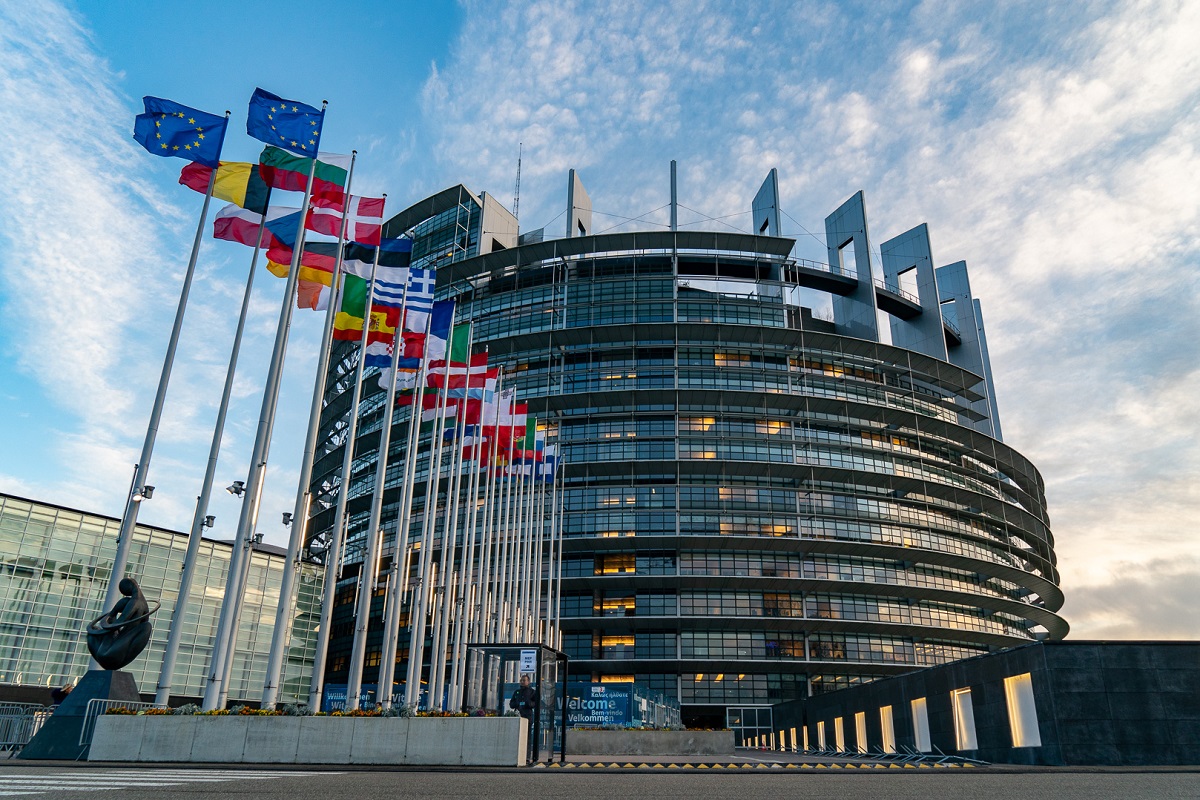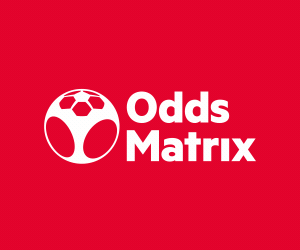European Union
EU Court of Justice Rejects Belgium’s Request for Annulment of EC Online Gambling Recommendation

The EU Court of Justice (CJEU) rejected earlier this week a petition filed by the Belgian Government against a set of recommendations for the protection of consumers of online gambling services and the prevention of minors from gambling online.
The recommendations were introduced by th European Commission in 2014 but the government of Belgium contested them in court, arguing that these were breaching each individual Member State’s right to regulate their online gambling market in a manner they found fit and to adopt player protection measures of their own choice. Belgian lawmakers further claimed that the European Commission had overstepped its authority by issuing the guidelines.
Earlier this week, the EU Court of Justice rejected the above claims and found that the European Commission had not exceeded its competence and that the set of recommendations had not interfered with Member States’ right to implement their own online gambling regulations.
The CJEU ruling affirmed a previously issued court decision by the General Court. The latter court dismissed Belgium’s case in the fall of 2015. The Belgian government will not be able to appeal the latest ruling further.
Why have the guidelines been contested?
The European Commission introduced the Commission Recommendation on principles for the protection of consumers and players of online gambling services and for the prevention of minors from gambling online in the summer of 2014. It was not legally binding and only aimed to present Member States with a set of guidelines for the effective protection of online gambling customers and the prevention of minors from being targeted and allowed to gamble online.
In October 2014, the Belgian Government filed against the recommendation, seeking its annulment by the EU’s highest court. As mentioned above, Belgian lawmakers claimed that the Commission had gone beyond its authority by introducing the guidelines and encouraging Member States to adopt them.
The Belgian government further pointed out that under EU treaties, the Commission did not have the authority to introduce “an instrument with harmonizing effect” in the online gambling sector.
It also emerged back then that concerns that the recommendation would lower the standards previously set by the Belgian Gaming Act stood at the heart of the country’s discontent.
The European Gaming & Betting Association, EGBA, welcomed CJEU’s ruling in a Tuesday statement. The Association also called upon the European Commission to encourage Member States to adopt its guidelines, to review for any gaps in their implementation, and to take corrective action if needed so that high level of consumer protection across the European Union is achieved.
Based in Brussels, EGBA is the industry body representing online gambling operators based and licensed within the European Union. Its member list includes bet365, Betsson, Kindred Group, and GVC Holdings, among others.
Compliance Updates
THE EU AI ACT AND ITS IMPLICATIONS FOR THE IGAMING INDUSTRY

By: Danil Emelyanov, Head of AI Labs, Betby
First of all, the regulation of AI is inevitable. The EU was the first to step into this arena with the EU AI Act, setting a precedent that other parts of the world will likely follow. This proactive approach positions the EU as a leader in AI governance, but it also means that regions adopting similar regulations later might benefit from the lessons learned and adjustments made in response to early implementations.
The downside is that those who come last to the regulatory scene might indeed benefit the most. For instance, the competitive landscape in AI innovation currently favors new entrants in the US or UK over Europe, partly due to the stringent compliance requirements of the EU AI Act. This regulation could potentially affect the flow of investments into European AI ventures, making regions with more flexible or yet-to-be-defined regulations more attractive for AI start-ups and investors.
However, the positive aspect is the collaborative approach the EU has taken in drafting this legislation. It’s not a one-way mandate from legislators to businesses; rather, it involves dialogue and input from various stakeholders, including tech companies and open-source communities. Notably, there are exemptions for open-source AI models, likely influenced by contributions from French and German tech firms like Mistral and Aleph Alpha, which have been vocal about the importance of open-source innovation.
The AI Act predominantly focuses on regulating foundation models rather than classic machine learning models. The legislation sets a computational power threshold at 10^25 floating-point operations per second (FLOPS), below which AI systems are generally exempt from stringent regulations. This threshold implies that unless an organization is training a model on the scale of GPT-3.5 or larger, compliance concerns are minimal. This serves as a reminder of the value of simpler machine learning techniques like logistic regression and random forests, which can effectively solve business problems without the complexity and regulatory scrutiny of more advanced models.
For the iGaming industry, the implications of the EU AI Act are relatively manageable. Our legal teams will diligently study the law to ensure compliance, even if it means a slight reduction in the accuracy of our models. This cautious approach is necessary because the fines for non-compliance are substantial, ranging from 1.5% to 7% of global turnover, depending on the severity of the offense and the size of the company. Additionally, some aspects of the Act are vaguely defined, which could pose challenges in interpretation and application.
Despite these challenges, the iGaming sector should remain vigilant. Staying informed about regulatory updates and actively engaging with the regulatory process can help mitigate risks and ensure smooth compliance. The EU AI Act sets high standards for transparency, accountability, and ethical AI use, which, whilst demanding, also push the industry towards more responsible AI deployment.
Compliance Updates
EGBA Welcomes European Parliament’s Approval Of New EU Anti-Money Laundering Framework

The EU’s new anti-money laundering package aims to create a more consistent regulatory framework and will benefit online gambling operators by standardising AML rules and reporting requirements across member states.
Brussels, 24 April 2024 – The European Parliament has approved the EU’s new anti-money laundering (AML) package at its plenary sitting today, marking a significant milestone towards a new EU framework for combatting financial crime. The European Gaming and Betting Association (EGBA), representing Europe’s leading online gambling operators, welcomes the Parliament’s approval of the new AML package and believes the incoming rule changes will strengthen the EU’s approach to tackling money laundering.
The new package will contain:
- A single rulebook regulation – with provisions on conducting due diligence on customers, transparency of beneficial owners and the use of crypto-assets.
- The 6th Anti-Money Laundering Directive – containing national provisions on supervision and national AML authorities, as well as on the access of authorities to necessary and reliable information, e.g. beneficial ownership registers.
- The establishment of the European Anti-Money Laundering Authority (AMLA) – which have supervisory and investigative powers to ensure compliance with AML requirements, operating in conjunction with national AML authorities.
EGBA believes the new rules will benefit Europe’s online gambling operators by ensuring a consistent regulatory approach across EU member states. Another important feature, under the competence of AMLA, will be the creation of a harmonised reporting format for Suspicious Transaction Reports (STRs). This will ensure that Europe’s online gambling operators encounter the same STR requirements across all EU member states, thereby setting clear and consistent expectations that will reduce administrative burdens and costs.
To assist online gambling operators in complying with the EU’s new AML rules, EGBA has developed industry-specific guidelines on anti-money laundering which apply a risk-based approach and include practical measures that operators can take – on customer and business risk assessments, customer due diligence processes, suspicious transaction reporting, and record keeping. EGBA members already apply the guidelines and submit annual reports to EGBA that summarise their progress in implementing its measures. The guidelines are also open to all operators based in the EU and EGBA encourages operators to sign up to them.
The AML package now awaits formal adoption by the Council of the EU, expected in May, before being published in the EU’s Official Journal.
“We welcome the European Parliament’s approval of the new anti-money laundering package. The new framework will set high standards and ensure greater consistency in the application of AML rules across the EU. Online gambling operators, especially those operating in multiple countries, will benefit from a single rulebook and harmonised reporting requirements that will unravel national complexities. We will look to review our industry guidelines on AML to ensure their alignment with the new EU rules. By signing up to the guidelines, operators can already prepare themselves for the incoming changes in the EU rules and join our members in their efforts to proactively and positively contribute to the EU’s fight against money laundering.” – Dr. Ekaterina Hartmann, Director of Legal and Regulatory Affairs, EGBA.
Source: EGBA
Compliance Updates
European Union Updates Country List for Stricter AML Checks

The European Commission, the executive branch of the European Union (EU), has updated its list of high-risk countries, from which players should be subjected to stricter customer checks by gambling operators.
Based on Directive (EU) 2015/849, Article 9, the Commission identifies any high-risk third countries that have strategic deficiencies in their regime on anti-money laundering and countering the financing of terrorism.
As such, operators based in the EU that are offering services to these countries or dealing with players from these nations are obliged to carry out heightened vigilance checks.
The list was first published in July 2016 and has been updated a number of times as further countries of concern are identified and flagged by the Commission.
The latest countries to be added to this list – in an update published last month – include Burkina Faso, the Cayman Islands, Haiti, Jordan, Malo, Morocco, Myanmar, the Philippines, Senegal and South Sudan.
Other nations included on the list include Afghanistan, Barbados, Cambodia, the Democratic People’s Republic of Korea, Iran, Jamaica, Myanmar, Nicaragua, Pakistan, Panama, Syria, Trinidad and Tobago, Uganda, Vanuatu, Yemen and Zimbabwe.
-

 Eastern Europe5 days ago
Eastern Europe5 days ago7777 gaming is now available on WINBET Romania
-

 Gambling in the USA5 days ago
Gambling in the USA5 days agoGaming Americas Weekly Roundup – July 15-21
-

 Gaming5 days ago
Gaming5 days agoMainStreaming Announces Appointment of Nicola Micali as Chief Customer Officer
-

 eSports5 days ago
eSports5 days agoINSPIRED LAUNCHES RE-PLAY ESPORTS™ FEATURING CS:GO IN PARTNERSHIP WITH KAIZEN GAMING
-

 Industry News5 days ago
Industry News5 days agoSafer Gambling Tools Use Hits Record High in 2023 – New Report from EGBA
-

 Australia5 days ago
Australia5 days agoAustralian eSports Star Joins Team Liquid
-

 eSports5 days ago
eSports5 days agoNODWIN(R) Gaming ropes in Android as title partner for BGMS Season 3; to be powered by Garnier Men
-

 Latest News5 days ago
Latest News5 days agoSpinomenal shines again with Super Wild Fruits release









































